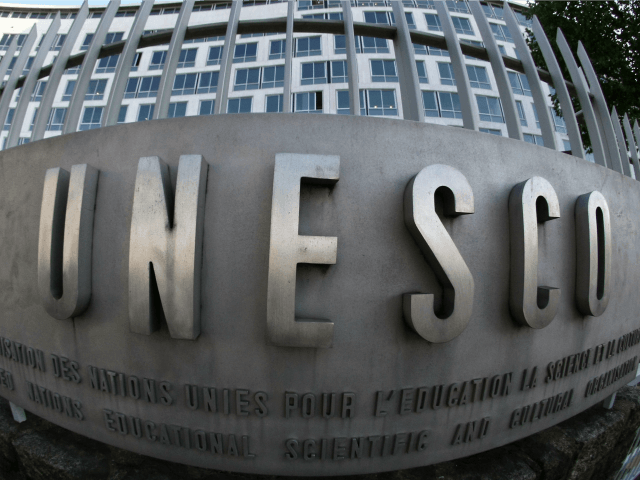PARIS (AFP) – Two Arab candidates and France’s former culture minister vied to become the new head of the UN’s embattled culture and education agency on Friday, a day after the US quit the body, accusing it of anti-Israel bias.
The politically charged campaign to succeed UNESCO’s outgoing chief Irina Bokova was overshadowed by Washington’s announcement Thursday that it planned to withdraw from the body after years of tensions over decisions seen as critical of Israel.
Israel itself announced shortly afterwards that it would follow suit.
Arab states believe the job of director-general of the 195-member organisation should go to one of them for the first time, but regional tensions have complicated the task.
They are divided between backers of oil-rich Qatar and its poorer rival Egypt, which is part of a Saudi-led coalition that has been blockading Qatar since June over its alleged support for radical Islamists and ties to Iran.
Former Qatari culture minister Hamad bin Abdoulaziz Al-Kawari is currently leading the contest, with French ex-culture minister Audrey Azoulay and Egyptian rights activist Moushira Khattab locked in joint second.
There have been four rounds of voting already and another two are expected to produce a winner on Friday.
– Arab divisions –
In the face of Arab divisions, France has presented Azoulay as a consensus figure who could mend fences within the organisation and sooth tensions caused by recent resolutions against Israel.
“Now more than ever UNESCO needs a project… which restores confidence and overcomes political divisions,” the foreign ministry said in a statement reacting to the US pullout.
Lebanon’s candidate Vera El-Khoury, who bowed out at the fourth round, told AFP that the power game at play in the race had shown UNESCO members “did not give a damn” about the candidates’ programmes.
Qatar has lobbied intensely for the post — and has increased its financial contribution to support UNESCO in recent years — but its candidate has been dogged by old allegations of anti-Semitism.
He has notably been accused by the Simon Wiesenthal Center, which combats anti-Semitism, of remaining silent over the presence of anti-Semitic books at a fair in Doha when he was culture minister.
This is not the first time the US — a founding member — has walked out on the 195-member UNESCO, best known for producing a list of World Heritage sites including tourist favourites such as the Grand Canyon or Cambodia’s Angkor Wat.
The US decision, which is to take effect on December 31, 2018, underlined America’s drift away from international institutions under President Donald Trump.
The agency’s outgoing head, Bulgaria’s Irina Bokova, told French radio that UNESCO’s “universal mission was in jeopardy”.
US State Department spokeswoman Heather Nauert said the decision to leave reflected “US concerns with mounting arrears at UNESCO, the need for fundamental reform in the organisation, and continuing anti-Israel bias.”
Ex-president Ronald Reagan first pulled the US out in 1984 over alleged financial mismanagement and claims of anti-US bias in some of its policies.
Washington returned to the fold in 2002, seeing UNESCO as a vehicle for combatting extremism in the wake of the September 11, 2001 attacks.
But in 2011 relations soured again after UNESCO admitted Palestine as a full member, prompting the US to cut its funding to the organisation, leaving a gaping hole in its finances.
The rift continued to fester in recent years, with the organisation becoming the scene of repeated diplomatic flare-ups after efforts led by Arab countries to pass resolutions critical of Israel.

COMMENTS
Please let us know if you're having issues with commenting.